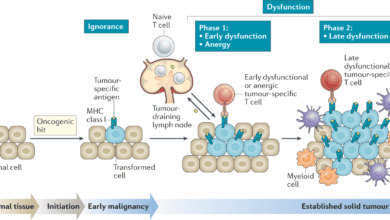
Do You Have A Dental Emergency? Here’s What to Do
Does your family or loved one need you to make an urgent dental visit? In case you have never visited your dentist in a while or had a filling or root canal procedure done recently. You know you could be in serious pain and discomfort. In addition, having pain in the mouth is uncomfortable. Which can lead you to make the wrong choices when it comes to your health. In this article, we’ll help you learn what you need to do to get yourself back on track with your oral health.
How To Relieve Pain?
If you have a dental emergency that has occurred, there are several things. You can do right away to relieve the pain and calm your nerves. In most cases, postponing a trip to the Emergency Dentist in Birmingham to deal with a problem can lead you to experience more complications, such as increased damage or infection to a tooth. If you are knocked out in the middle of the night and are suddenly unable to feel your lips or even your teeth, you can try drinking warm water. Warm water has been shown to relax the muscles in the mouth, which can make it easier to move your jaw and open your mouth. This can take a few minutes but, in addition to easing the pain, it will also allow you to catch any blood that may be dripping down your chin.
In the event that you do have a dental emergency, the same strategy works well. By taking a warm, calming bath, or placing ice cubes directly on your face or chin for 15 minutes, you can ease the pain and swelling caused by swollen gums or an infected tooth. If you feel that you are in serious trouble and that you cannot avoid a trip to the emergency room, the dentist is usually able to perform some tasks to get you comfortable enough to talk without moving your jaw.
Many people who suffer from a dental emergency are told to wait at least two days before seeing a dentist. If you are a person who prefers to see their dentist immediately upon experiencing tooth pain or tooth loss. You should definitely avoid scheduling a follow-up appointment. Your dentist will assess the situation and decide whether waiting for two days is adequate or if it is not likely that. Your teeth will regain their original condition before your next appointment.
Avoid Spicy Foods
You should avoid eating spicy foods if you are experiencing an oral emergency. Spicy food can irritate your gums and cause pain and swelling. You should also avoid chewing tobacco if you have a toothache. Smoking harms your overall health and increases the risk of tooth decay, periodontitis, and gum disease. Therefore, if you must chew tobacco, you should chew it in small quantities and let your dentist know about it.
Use Fluoride Toothpaste
You can also prevent tooth sensitivity or broken toothache by using fluoride toothpaste. Fluoride toothpaste is specially designed to prevent tooth sensitivity and broken toothaches. It contains natural ingredients that prevent tooth sensitivity and help prevent broken toothaches. In addition, fluoride also helps prevent tooth decay and periodontal disease by removing harmful bacteria and altering the chemical composition of plaque. If you regularly use fluoride toothpaste, your risk of developing tooth sensitivity and broken tooth decreases significantly.
If you are experiencing tooth pain or any tooth loss, the first thing that your dentist will tell you is not to worry. Most dental professionals believe that tooth loss is simply the normal process of aging. Therefore, they do not recommend taking over-the-counter pain relievers to prevent tooth decay or to alleviate your pain. In fact, tooth decay and tooth loss are symptoms of a serious underlying illness and if you do not get treatment. You could risk infecting the jawbone with gingivitis and infecting. Your mouth with a virus that could make your teeth more susceptible to tooth decay and tooth loss.
Conclusion;
Another sure sign that you have a dental emergency is if you start to bleed while. You are brushing your teeth. Bruising can indicate gum disease, cavities, and abscesses. If you start to bleed while brushing your teeth, you should immediately contact your dentist. Your dentist will give you different mouth guard options to help stop or minimize bleeding while you brush. Some mouth guards can numb the area that is bleeding so the pain will be greatly reduced, or. You can get a mouth guard that is designed specifically for bleeding.
INFORMATIVE: The Best Nursing Specialties to Go into





